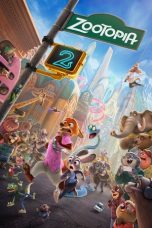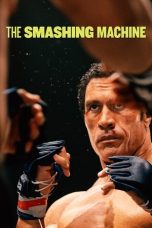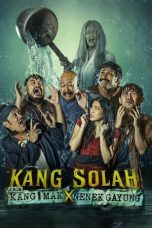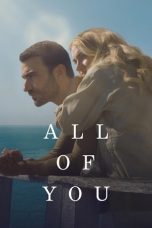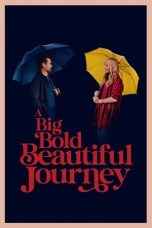La Dolce Vita (1960) Movie Review: Fellini’s Timeless Exploration of Fame and Fulfillment
Introduction
Federico Fellini’s La Dolce Vita (1960) is a cinematic masterpiece that delves into the extravagant and disillusioned world of Roman high society. Renowned for its rich imagery, complex narrative, and critical examination of fame and decadence, this Italian classic remains influential and relevant more than six decades after its release. With its portrayal of a hedonistic lifestyle and existential searching, La Dolce Vita offers both a vivid snapshot of 1960s Italy and a timeless commentary on the pursuit of happiness and meaning.
Plot Summary
La Dolce Vita follows Marcello Rubini (played by Marcello Mastroianni), a tabloid journalist who navigates the glamorous yet superficial world of Roman elite. The film is structured as a series of episodes, each exploring different facets of Marcello’s life and the world he inhabits.
Marcello is an aspiring writer working for a scandalous magazine, and his life is marked by a series of encounters with high-society figures, celebrity scandals, and romantic escapades. Throughout the film, Marcello struggles with his own sense of purpose and fulfillment, oscillating between the allure of fame and the desire for deeper, more meaningful connections.
The narrative captures Marcello’s interactions with various characters, including:
- Sylvia (Anita Ekberg): A glamorous American actress who represents the epitome of fame and seduction. Her iconic scene in the Trevi Fountain is one of the film’s most memorable images.
- Emma (Yvonne Furneaux): Marcello’s long-suffering girlfriend, who embodies the traditional and conventional aspects of life that Marcello is increasingly alienated from.
- Maddalena (Anouk Aimée): A sophisticated and enigmatic socialite with whom Marcello has a brief affair, highlighting his ongoing dissatisfaction with his romantic relationships.
As the film progresses, Marcello’s encounters with these characters and his own existential crises lead him to confront the emptiness of his life and the superficiality of the society he inhabits. The film culminates in a dramatic and poignant finale that underscores the themes of disillusionment and the search for authenticity.
Character Analysis
- Marcello Rubini (Marcello Mastroianni): Mastroianni delivers a nuanced performance as Marcello, capturing the character’s internal conflict and existential questioning. Marcello is portrayed as a charming yet troubled individual, embodying the disillusionment of modern life and the search for meaning in a world dominated by superficiality and excess.
- Sylvia (Anita Ekberg): Anita Ekberg’s portrayal of Sylvia is both alluring and emblematic of the seductive nature of fame. Her character’s larger-than-life presence and the iconic Trevi Fountain scene symbolize the fleeting and ultimately unfulfilling nature of celebrity.
- Emma (Yvonne Furneaux): Yvonne Furneaux’s Emma represents the conventional and domestic side of Marcello’s life, contrasting sharply with the glamorous and hedonistic world he is drawn to. Her character highlights Marcello’s internal conflict and his struggle to reconcile his desires with his reality.
- Maddalena (Anouk Aimée): Anouk Aimée’s portrayal of Maddalena adds depth to Marcello’s exploration of love and relationships. Maddalena’s sophisticated and mysterious nature serves as a catalyst for Marcello’s introspection and dissatisfaction.
Direction and Cinematography
Federico Fellini’s direction in La Dolce Vita is masterful, blending surrealist elements with a realistic portrayal of Italian society. The film’s episodic structure allows for a broad exploration of themes and characters, each episode contributing to the overall narrative of Marcello’s journey.
The cinematography by Otello Martelli is striking, capturing the opulence and decadence of Roman high society with vibrant and evocative imagery. The film’s use of long takes, dynamic camera movements, and iconic set pieces, such as the Trevi Fountain scene, contribute to its visual splendor and enduring impact.
Fellini’s use of symbolism and allegory enhances the film’s thematic depth. The juxtaposition of grandeur and emptiness, as well as the recurring motifs of parties, celebrity, and spiritual longing, underscore the film’s critique of modern life and the search for meaning.
Themes and Symbolism
La Dolce Vita explores several significant themes:
- The Pursuit of Happiness: The film critiques the pursuit of happiness through fame and material success, illustrating how such pursuits can lead to disillusionment and a sense of emptiness.
- Fame and Superficiality: The film examines the superficiality of celebrity culture and the impact of fame on personal identity and relationships.
- Existentialism and Meaning: Marcello’s journey reflects existential questions about the nature of fulfillment and the search for authenticity in a world dominated by appearances and excess.
Available Streaming Services and Rental/Purchase Options
For viewers interested in experiencing La Dolce Vita (1960), the film is available on several platforms. As of now, you can find the film on:
- Amazon Prime Video: Available for rental or purchase. Rental prices are typically around $3.99, while purchasing the film costs approximately $14.99.
- Apple iTunes: Available for both rental and purchase, with similar pricing to Amazon Prime Video.
- Google Play Movies & TV: The film can be rented or bought here, with rental prices around $3.99 and purchase prices about $14.99.
- Criterion Channel: Available for streaming with a subscription, as part of their curated collection of classic and influential films.
- Hulu: Available for streaming with a subscription, offering a selection of classic films including La Dolce Vita.
Conclusion
La Dolce Vita remains a quintessential film in Federico Fellini’s oeuvre and a landmark in world cinema. Its exploration of fame, superficiality, and the search for meaning continues to resonate with audiences. With its innovative direction, striking cinematography, and rich thematic content, the film stands as a testament to Fellini’s vision and the enduring power of cinema to explore the human condition.
For those seeking to delve into this cinematic classic, La Dolce Vita is readily accessible on various streaming platforms, providing an opportunity to experience one of the most influential films of the 20th century.


